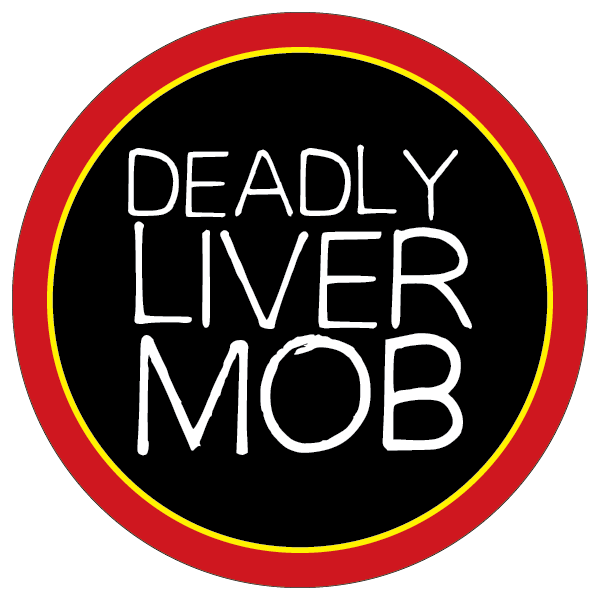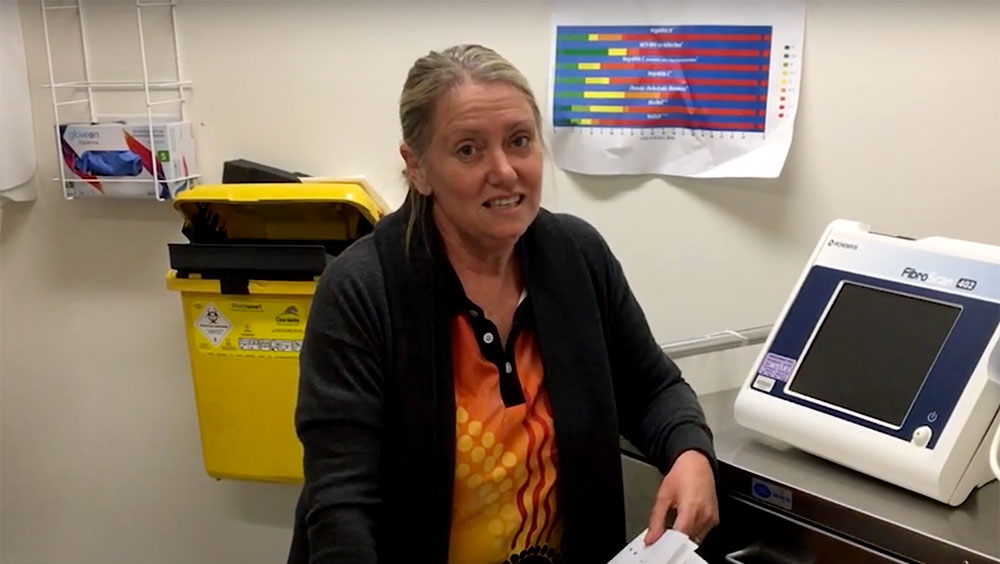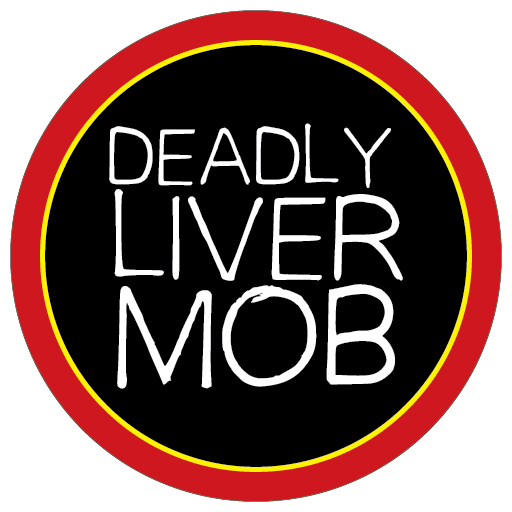The important issues to consider are available staff expertise, co-located services, local community factors and especially ease of access. Deadly Liver Mob is run by Aboriginal people, for Aboriginal people, with information relevant to Aboriginal people. Aboriginal workers perform vital roles in the program, ensuring that it is culturally appropriate, friendly and non-judgemental.
Deadly Liver Mob requires staff who are expert both in hepatitis C and sexual health education, screening and treatment. Having sufficiently skilled staff to conduct these activities and a fully equipped place in which to conduct screening are basic requirements. The Deadly Liver Mob program could be conducted in fixed or mobile sites. It is important that the Deadly Liver Mob program is provided consistently in relation to time and place (if not offered daily) so that clients get to know when and where to attend.
The logic of Deadly Liver Mob is that the steps in receiving care (the care cascade) are reduced or minimised as much as possible. This requires a range of skill sets among the workers — expertise in engaging with Aboriginal communities and clients, skills in educational approaches that reinforce and empower clients, technical understanding of hepatitis C (HCV) transmission, clinical skills in taking histories and screening for HCV, other blood borne viruses (BBVs) and sexually transmissible infections (STIs), and in delivering treatment. Few services are equipped to provide all of these services.
Key to achieving the goals of the Deadly Liver Mob program is the “one-stop-shop” approach and the co-location of services (or other strategies such as transport to minimise actual and perceived barriers). This requires planning to bring relevant services on board and communication about how the program will work between services.
A central element of the Deadly Liver Mob program is the ownership of the project by Aboriginal workers within the health service. The consistency of workers is also important to build rapport or trust with clients of the program and to address other issues.
Most of the Deadly Liver Mob sites that have already been set up ran one or two days per week. This was a practical decision based on staff availability to conduct education as well as in negotiation with sexual health services that must also be equipped on program days to provide opportunistic screening in a timely and accessible way. This is very important, as asking clients of the program to wait for screening or return on another day will undoubtedly result in drop-outs and reduce the effectiveness of the program. It is also important to ensure that the program runs consistently on the designated program days. As the program becomes better known in the community, clients will attend on these days expecting services and payment of incentives. It could damage the reputation of and trust in the Deadly Liver Mob program and the service if the program’s resources are not available when advertised.


